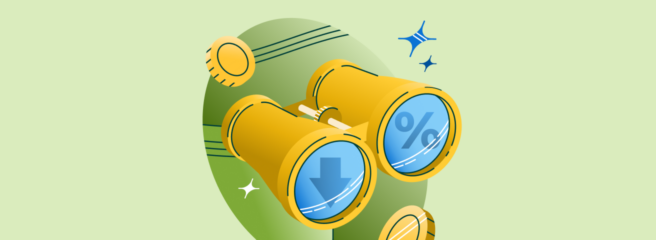
You’re probably already familiar with the most common pieces of financial advice and quick ways to save money. You already know you need to save for emergencies, budget, and spend less than you earn.
Those are good pieces of advice but there’s a whole host of other, lesser-known personal finance hacks that can really move your money situation forward with minimal effort on your part. Here are some of the best ways you can start saving money:
Pay yourself first
There are a ton of different budgeting styles. But no matter which one you choose — even if you’re not budgeting at all — one of the best things you can do is to pay yourself first from every paycheck you get.
The idea here is simple: right after you get paid, you set aside money for yourself. That could mean building your emergency fund, saving for retirement, or even paying off high-interest debt.
Most people wait to save whatever’s leftover at the end of the month. But if you wait to do that, often there’s nothing left. By paying yourself first, you’re making yourself the priority.
Refinance your auto loan
Your auto loan is one of the biggest expenses you’ll ever have. And if you took out an auto loan in recent years, there’s a good chance you could get a better rate right now.
This point is especially important because many people are taking out longer auto loans these days. If you’re able to lower that interest rate even by just a little bit, that could save you a ton of money in the long run. Plus, refinancing is quick and easy to do.
Order your groceries
Many grocery stores these days allow you to order your food online for curbside pickup or even home delivery. There’s usually a small fee for this, but in return, you could end up saving far more.
That’s because if you’re like many people, the grocery store is where you make most of your impulse purchases. Furthermore, many people don’t do meal planning to find out what ingredients they need to pick up in advance for the recipes they’ll be cooking.
Ordering your groceries online solves those two problems. You won’t be tempted to buy food you don’t need, and it forces you to plan what you need to buy in advance so you always have what you need.
Automate your finances
Sometimes it seems like people who are good with their money are more like wizards. But here’s the secret: they’re not, they just automated a lot of their finances so they don’t have to do it themselves.
Rather than manually paying each of your bills every month, set them all on autopay. Setting up automatic withdrawals to your savings account for the day after you get paid is also a great way to use the “pay yourself first” strategy too. That way, you’ll never have to remember to do these things again — they’ll just happen, well, automatically.
Keep your long-term savings at a different bank
How many times have you moved money from your savings into your checking account, promising that you’d pay yourself back later? Just knowing that you have that pot of money you can easily tap into can make it easy to overspend.
Instead, try this: Open a new high-interest savings account at a completely different bank. Use this account for your long-term savings, such as for emergencies, vacations, or even holiday gifts.
This gives you the freedom to shop for a savings account with an even higher interest rate, and it removes that temptation to overspend. You can still get your money out of the account if you need it but it’ll take a day or two, and that pause can help you stay on track.
Track progress towards your financial goals
You know how when organizations do fundraisers, they often have fun visuals like a thermometer that they slowly fill in? There’s a reason for it — turning an abstract thing like savings into something visual like that helps keep you focused.
You can do the same thing with your own goals. There are tons of fun free charts on the internet that you can fill in to track your progress towards savings, or even debt payoff. Print these out and put them on your fridge or another highly-visible spot where you’ll see it and be reminded often.
Pay off debt faster with the snowball or avalanche method
Becoming debt-free can be a long journey, but there are some shortcuts you can use to get there faster. Two of the best strategies to use are the debt snowball and debt avalanche methods.
With the debt snowball method, you line up all your debts in order from smallest balance to largest. You commit to paying something extra each month towards that smallest debt, and when you pay it off, you roll that old payment towards the next debt and repeat until everything is paid off.
The debt avalanche method works the same way, except you order your debts from highest interest rate to lowest. That means you pay off your most expensive debts first.
Mathematically, the debt avalanche is best, but most people prefer the debt snowball because you build up quick steam by paying off several small debts in the beginning. Like the rest of personal finance, there’s no right or wrong answer: only what’s best for you.
Car refinance loans not available in IA, MD, NV, or WV. Car refinance loans in IL and MO are originated by Cross River Bank or Midwest BankCentre. Car refinance loans in CO, KS, and TX are originated by Cross River Bank or Rising Bank, Member FDIC. Car refinance loans in FL, GA, and AL are originated by Cross River Bank or Drummond Bank, Member FDIC. All other car refinance loans are originated by Cross River Bank, Member FDIC.






 Won't affect your credit score¹
Won't affect your credit score¹